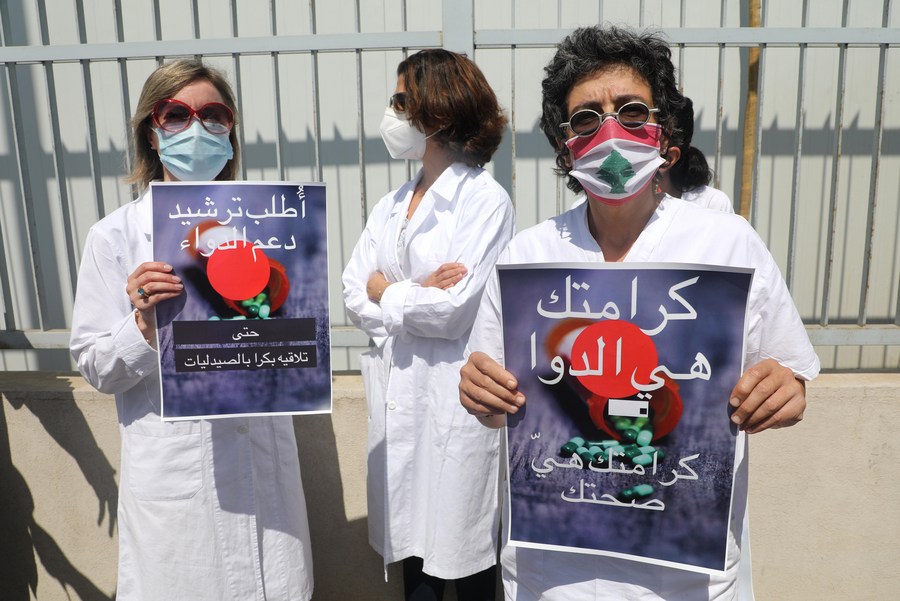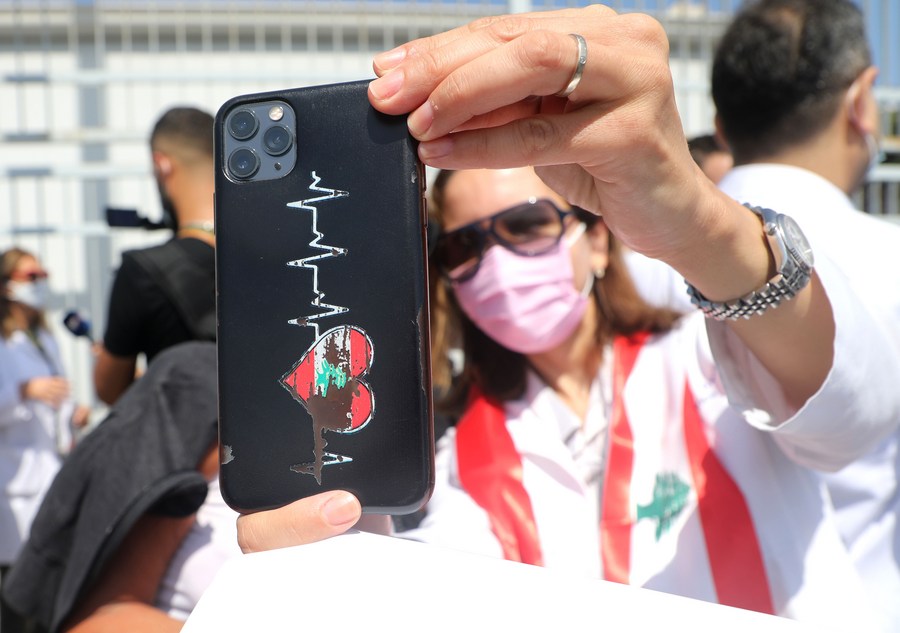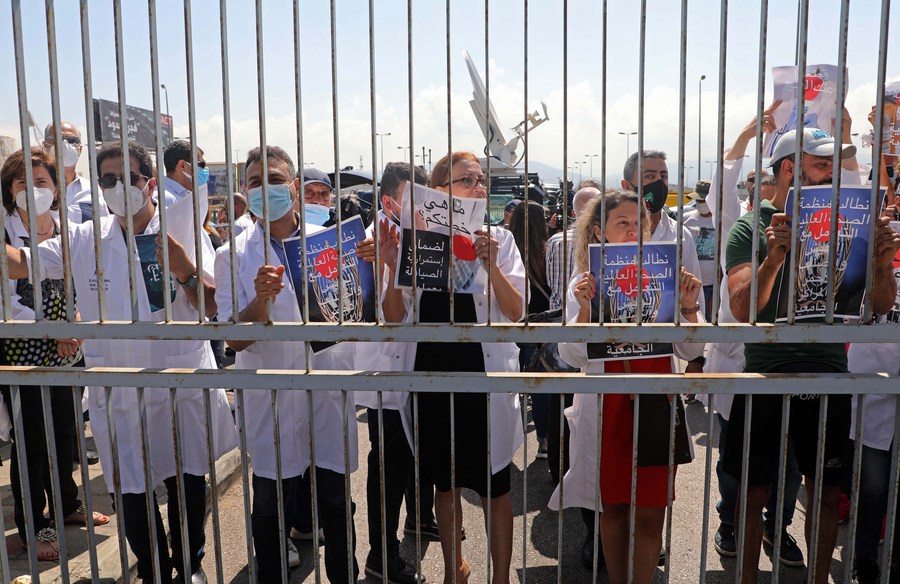
Lebanese pharmacists stand in front of the Ministry of Health in protest of the medicine shortage in Beirut, Lebanon, on June 11, 2021. (Xinhua/Bilal Jawich)
Lebanese are suffering from acute medicine shortage as medicine importers try to hold their inventories amid facing unpredictable subsidy policies. Some Lebanese pharmacists urge the authorities to adopt a strategy to rationalize subsidies instead of subsidizing all kinds of medicines.
BEIRUT, June 11 (Xinhua) -- "My grandfather has only one functioning kidney. He needs Cynt 0.4 mg and Concor 5 plus urgently," Tarek Noury, a Lebanese citizen, posted in LibanTROC group, a Lebanese community on Facebook.
"I am desperately looking for Forxiga 10 mg for a serious diabetes case in my family and I can't find it anywhere," another Lebanese citizen named Odile Abou Chakra posed in the same Facebook group.
Such posts have become common on Facebook since a couple of months ago with the aggravation of the financial crisis in Lebanon.

Lebanese pharmacists stand in front of the Ministry of Health in protest of the medicine shortage in Beirut, Lebanon, on June 11, 2021. (Xinhua/Bilal Jawich)
Moreover, scenes of long queues in pharmacies could be seen in the country after the central bank announced in late 2020 its intention to cancel its subsidies on medicines given the shortage in U.S. dollars needed to import basic commodities.
Under huge pressure from both the authorities and the public, however, the central bank later on several occasions promised to keep its subsidies on medicines, but it has not made any practical move toward the direction as yet.
This has prompted medicine importers to hold their inventories, until either the central bank offers the subsidies in dollars that are due to them or the subsidies are officially cancelled to allow the importers to re-distribute their medicines at high prices.

Lebanese pharmacists stand in front of the Ministry of Health in protest of the medicine shortage in Beirut, Lebanon, on June 11, 2021. (Xinhua/Bilal Jawich)
"Lebanese citizens are stuck in the middle, as the government insists on keeping the subsidy to help citizens access medicines at a low cost while the central bank is not clear about its intention to keep the subsidy policy," Mohamad Jaber, owner of a pharmacy in Lebanon, explained to Xinhua.
Jaber also attributed the shortage of medicines in Lebanon to speculation and smuggling.
"Some people visit pharmacies to collect drugs and sell them to the black-market merchants, who then sell them to other countries such as Egypt or Jordan," Jaber said, blaming the failing policy of the state that has adopted prices lower than those in nearby countries and driven hundreds of pharmacies out of business.

Lebanese pharmacists stand in front of the Ministry of Health in protest of the medicine shortage in Beirut, Lebanon, on June 11, 2021. (Xinhua/Bilal Jawich)
Ghassan al-Amin, head of the Pharmacist Syndicate, said more than 300 pharmacies have shut their doors in the last two months after their profits dropped drastically.
Al-Amin urged Lebanon's authorities concerned to quickly adopt a strategy to rationalize subsidies instead of subsidizing all kinds of medicines.
"It is better for people to purchase medicines at higher prices instead of being totally deprived of such an essential commodity," he said. ■




